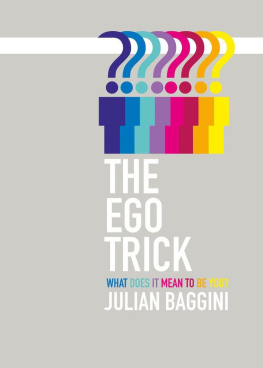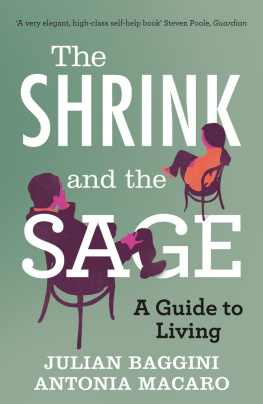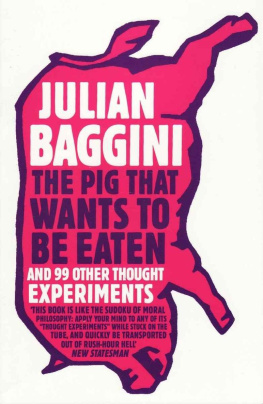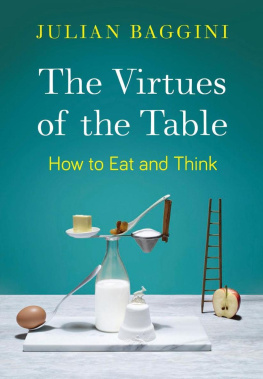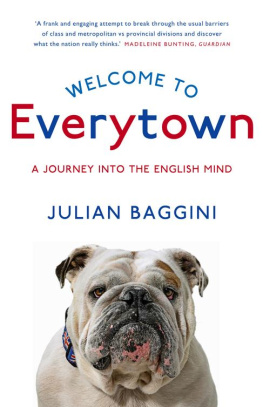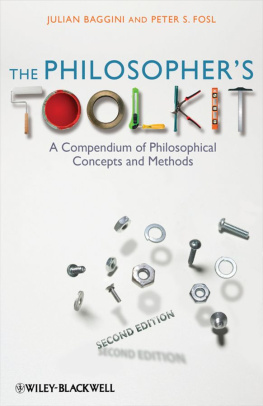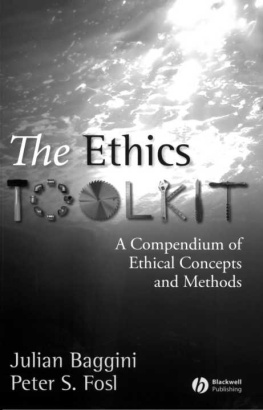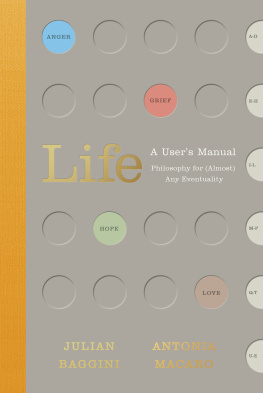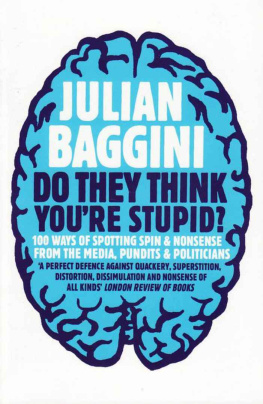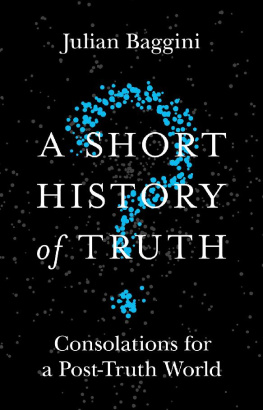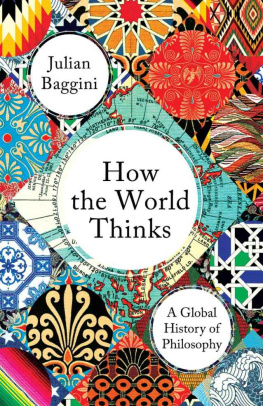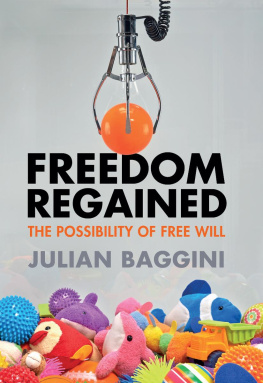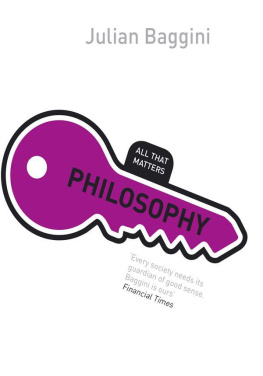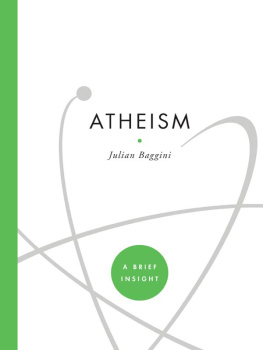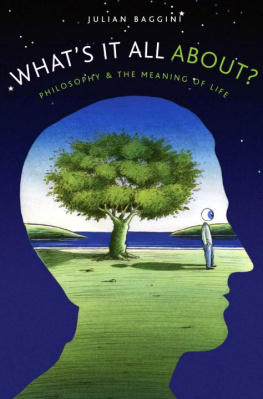Introduction
A seven-year-old boy has a ball roughly wrestled from him by an aggressive older schoolmate during an exuberant game of no-rules football. Enraged, he sees a block of wood within arms reach, filling the square hole in the ground where goalposts usually stand. What happens next feels less like an action the child performs and more like something his body does of its own accord. With the older boy walking away, his back turned, the aggrieved kid finds himself picking up the wood and hurling it at his rival, hitting him on the back of the head. For a few seconds, it is as though he is not himself. It is the only act of violence in his life so far, and will remain so for at least the next thirty-five years.
A seventy-year-old man is sitting in a chair in a care home. The woman talking to him is the love of his life, someone he had lived with for thirty-two years. But he doesnt recognise her. Nor does he have any idea that the books she is holding are ones that he himself wrote. He wouldnt now be able to understand even a word of them.
A 42-year-old man is sitting on a train, typing these words. The boys story belongs to his past, the old mans to his possible future. Yet looking backwards and forwards, unable to recognise himself in either child or pensioner, he finds he cannot answer an apparently simple question: was that boy and would that man be me ?
Some may be puzzled by this puzzlement. Of course all three people are the same. Each is a stage in the life of a single human organism, one which carries the unique DNA of a person identified as Julian Baggini. Certainly, each is different, but this simply reflects the banal truism that people change . When we say I am no longer the same person, thats just a figure of speech. To take it more literally would be to make the classic philosophical mistake, identified by Wittgenstein, of becoming bewitched by language.
I dont think this question or others like it can be dismissed as simply as that. Such puzzles of identity are not merely games philosophers play, they are lived out in the lives of real people every day. Most strikingly, they arise when people have to come to terms with loved ones suffering from dementia, damaged by some forms of severe brain injury, or in a permanent vegetative state. People talk about a time in the past when such people were still with us even as their physical presence suggests they still are. Often, by the time the body finally gives up its last breath, the mourning for the person has already largely been done. How can this be possible unless, in a very real sense, we are not simply the same as the biological organisms that carry our DNA, and our personal identity is something that can diverge from the life of the body we inhabit?
And yet, the same people who mourn for loved ones before clinical death do not, on the whole, cease to care for the damaged selves oblivious in their care homes or strapped to life-support machines. There is another equally real sense in which, even in such a lamentable state, the persons that remain are the very same persons that, in another sense, we believe no longer exist.
This is only one of a cluster of what might be called paradoxes of the self: beliefs we have about who and what we are which have an equal force yet which contradict one another. To call them paradoxes , however, is to be too pessimistic about our ability to reconcile their conflicting claims. It is better to think of them as riddles to be solved. Our ideas about who we are may well pull in opposite directions , but I believe that more than two millennia of philosophy and over a century of psychology have provided us with the resources we need to show that the truths in both do not cancel out, but complete each other.
The central riddle Ive set out to solve concerns the selfs continuity in change: how can we remain the same people over time, even as we change, sometimes considerably? Dementia is perhaps the most extreme real-life example, but most of us can get some sense of the riddles force simply by trying to remember how we were in the past. How often do we cringe when we come across things we wrote as teenagers, or are reminded of what we once said or did by others who were there? For instance, I remember my mother finding the words to a rude song a friend and I had written, one which was not only vulgar but based on such complete gynaecological ignorance I cant bring myself to tell you more about it, even now. Such acute embarrassment would only make sense if I felt that this was something I had myself done. But at the same time, the reason I feel embarrassed is precisely because of the disconnect between the man I believe myself to be and the child whose mind I can no longer get inside. I know I did it, but I cannot recapture a feeling for the me who did do it. Can most of us truly recall what it was really like to be five, ten or thirteen years old? The older we get, the less able we are to identify truly, with confidence, with our past selves. Sometimes, especially looking back on emotional traumas, we cannot explain what we did and thought only a few years ago. Our thoughts and actions are as inscrutable as those of strangers, or more so.
At the same time, each of us has a sense of me-ness which appears to be remarkably enduring, and which can assert itself in unexpected ways. For example, I recently met up with a group of old university friends, some of whom Id seen hardly at all for twenty years. Yet instantly, we were all completely at ease, recognising precisely those same features in each other we had come to know so well while sharing a house. Indeed, it was slightly depressing afterwards to realise how little we had changed. I liked to think I had grown and matured as a person, but whatever growth there had been seemed insignificant compared to what had not changed about me at all.
It seems that, over time, we change completely, yet remain completely the same. These inconsistencies in how we relate to past selves were captured lucidly by the film director Luis Buuel in his autobiography . My lifetime often seems to me like an instant. Events in my childhood sometimes seem so recent that I have to make an effort to remember that they happened fifty or sixty years ago, he wrote. And yet at other times life seems to me very long. The child, or the young man, who did this or that doesnt seem to have anything to do with me anymore.
There is a wealth of scholarly work in philosophy, psychology and neuroscience that can help us solve such riddles. However, too much of the brilliant literature on this subject is written by specialists in ways that conceal sometimes it seems wilfully their wider interest. Specialisation also disguises the extent to which philosophy, psychology, sociology, neuroscience and religion have different approaches, but all converge on the same subject. Academics in these fields often seem like critics each discussing a different detail of a painting, not realising they are all talking about the same picture. My aim is to step back and try to see this broader canvas. This should not, however, mean dispensing with rigour: a broad brush needs to be handled with as much care as a fine nib.

